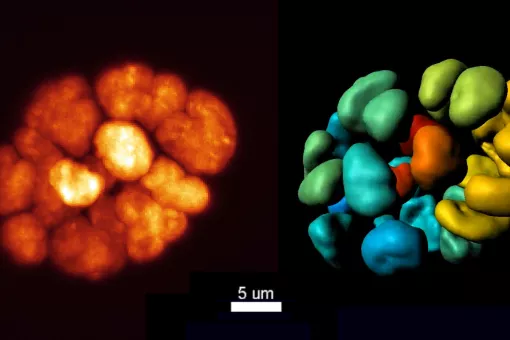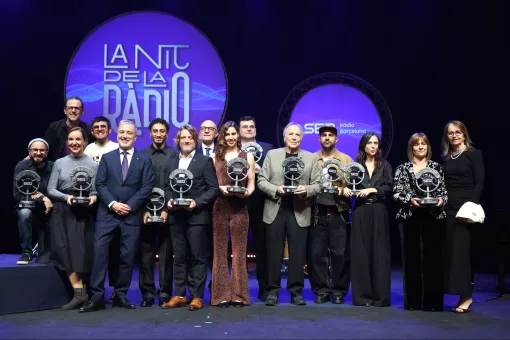Images
The researcher Teresa Tarragó receives 200,000 euros to study the cognitive deficit associated with schizophrenia and bipolar disorder.
The fundraising initiative “La Marató de TV3” has announced the 2008 awards allocated to the study of mental illnesses. Of the 153 projects presented, the Catalan Agency for Health Technology Assessment and Research has approved 26, among these the one presented by IRB Barcelona researcher Teresa Tarragó named “Prolyl oligopeptidase inhibitors isolated from traditional medicinal plant extracts for the treatment of the cognition deficits associated with mental diseases”.
This study addresses prolyl oligopeptidase (POP), a protein that participates in learning and memory functions. Research done by other laboratories has demonstrated that the inactivation of the protein facilitates learning processes. “New molecules that have the capacity to inhibit POP will be good candidates for the treatment of the cognitive deficits associated with mental illnesses such as schizophrenia and bipolar affective disorder”, explains Tarragó.
Those who suffer from these two mental diseases show symptoms such as a lack of concentration, memory or learning capacity, for which no treatment is currently available. The seriousness and social impact of mental illnesses spurred the “La Marató de TV3” to dedicate its 2008 campaign to them. The media impact of “La Marató de TV3” on Catalan society allows it to raise an average of 7 million euros per year, which are then allocated to research projects of excellence.
Bringing together the most traditional medicine and the most innovative technology
The researchers will screen extracts from medicinal plants used in China and the Mediterranean for new molecules with POP inhibitory activity. For this purpose, they will follow a method recently developed in the lab based on Fluorine Nuclear Magnetic Resonance and that will allow them to distinguish between those extracts with POP inhibitory activity and those without. To obtain drug candidates, they will identify the compound responsible for the effect on POP in order to be able to proceed with animal experiments.
This approach has several advantages. First, the substances that the researchers work with have been widely used throughout history for the treatment of psychiatric diseases. Second, these substances are extracted in water, thereby favouring their solubility and thus their uptake by the organism. These characteristics may reduce the years of study required to launch a new drug onto the market. “If all goes well, in 5 years we will be able to start clinical trials in humans”, states the researcher.
Involving Teresa Tarragó, research associate to the Ernest Giralt’s group, the project will be supported by PhD students Nessim Kichik and Laura Mendieta. In addition, a lab technician will be recruited using funding provided by the project.
About IRB Barcelona
The Institute for Research in Biomedicine (IRB Barcelona) pursues a society free of disease. To this end, it conducts multidisciplinary research of excellence to cure cancer and other diseases linked to ageing. It establishes technology transfer agreements with the pharmaceutical industry and major hospitals to bring research results closer to society, and organises a range of science outreach activities to engage the public in an open dialogue. IRB Barcelona is an international centre that hosts 400 researchers and more than 30 nationalities. Recognised as a Severo Ochoa Centre of Excellence since 2011, IRB Barcelona is a CERCA centre and member of the Barcelona Institute of Science and Technology (BIST).





